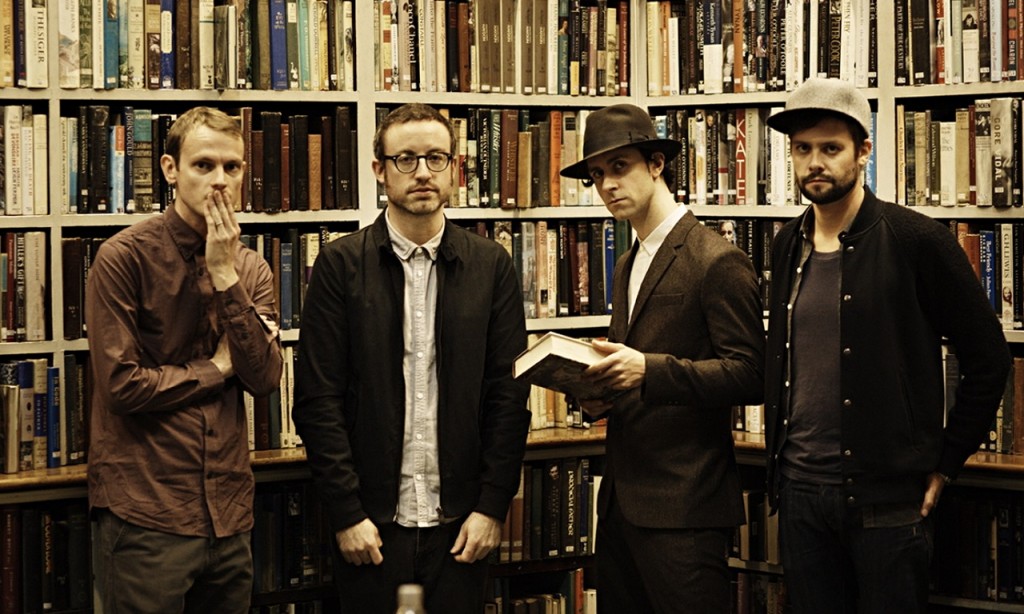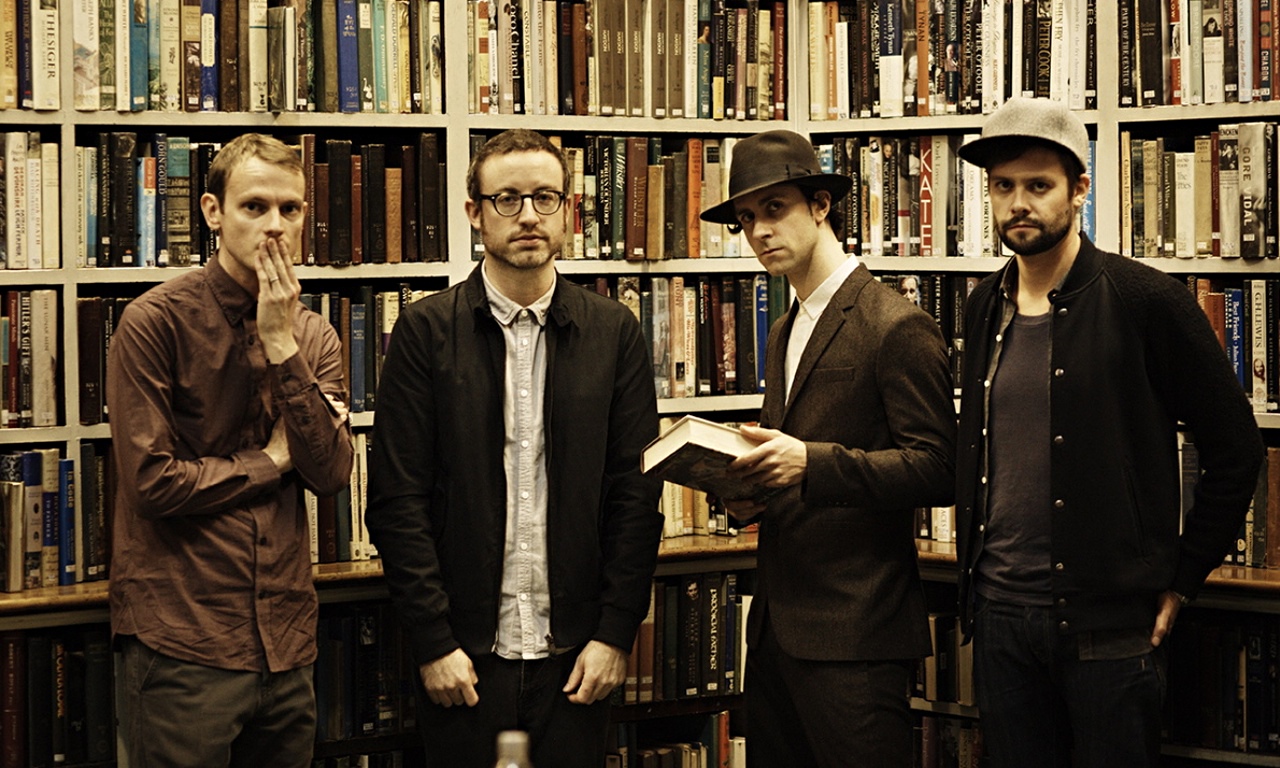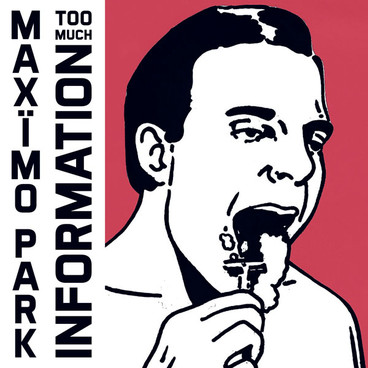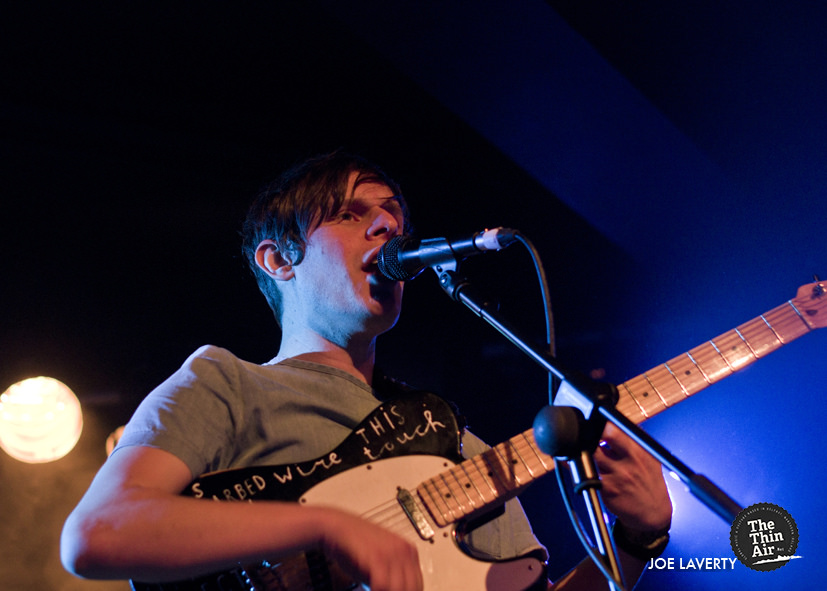
In the nine years since the release of their Mercury Prize nominated debut album, A Certain Trigger, Newcastle indie rock band Maximo Park have evolved and expanded upon their boundlessly energetic and impassioned approach to accommodate their collective desire to avoid repeating themselves.
With their new album, Too Much Information, embracing a decidedly more electronic approach to an exceptional end result, the Paul Smith-fronted are once more commanding critical clout for their unmistakable brand of zealous and adrenaline-fuelled indie rock.
Ahead of their highly-anticipated return to Belfast on March 1, Shannon O’Neill talks to the band’s keyboardist/vocalist Lukas Wooller about the writing of Too Much Information, how the band have progressed over the guts of a decade and what fans can expect from Maximo Park in 2014 and further afield.
Hey Lukas. You’re about to release your fifth studio album, Too Much Information. In what ways do you feel your sound has changed or developed since the days of A Certain Trigger?
Our aims are still the same – to make music that is catchy, passionate and with something extra that the usual pop music you normally hear doesn’t have. But with every album we always try to do something different – it seems pointless to us to repeat ourselves, no matter how much people have enjoyed our previous recordings.
In terms of more recent progression, how has the sound developed since The National Health?
Our first four albums were written with all five us in the same room, writing our parts together, so often the music is quite dense as we often play all at the same time. We wanted to create more space in the music, and we also wanted to try to keep as close to the spirit of the original demos that we make when we write new songs. In the past we’ve recorded with a producer in a studio of their choice, in a fairly short period of time. And this can have some amazing results, working with a collaborator, and recording an album that all comes from a specific time and place.
However, we chose to record most of this album ourselves in our own studio which we put together early last year. This allowed us to take our time on the recordings and to keep the parts that we really liked from the demos. ‘Brain Cells’ was a track that came quite early in the process and gave us that confidence to go where we hadn’t really gone before – to write a very bare song, and not feel that the space had to filled up, and to allow Paul to sing in a soft, more atmospheric way.
What artists were you listening to during the making of this album and have any influences shone through?
There is never an over-arching influence when we write a whole album, but each song can reference several artists. Duncan mentioned Fever Ray when he wrote ‘Brain Cells’, and although ‘Leave This Island’ has a satisfying, building piano chord progression that comes from listening to Nick Cave, the electronic production is probably influenced a little by The Knife in their darker moments. And we listened to The National when we were thinking about how to record ‘Drinking Martinis’, which we felt had a similar nagging, incessant feel.
How was the album title chosen and what was the thought process behind the painful looking (!) album design and artwork?
We’ve always been aware that people sometimes find the emotions expressed in our songs perhaps too over the top for their tastes, but it’s something that will always be a part of our music. There’s a lot of bands holding back and hiding behind a veneer of cool or irony, but we want to make music that really means something to people, that reaches out and affects the listener. So we thought it would be a cheeky reference to that idea – that even though some people say that we put too much information into our songs, genuine emotional expression is an essential part of what we do.
We thought the album cover image represented the title in a physical way, the tongue shave could be similar to the feeling you might get when you experience ‘too much information’. It comes from an old rave flyer, that was shown to us by the artist Matt Stokes who we worked with on the artwork and videos for this album. He is interested in musical subcultures like Northern Soul and also Rave. He felt there were elements in our new music, in the electronics and the references to night time activities in the lyrics that linked in with a nostalgic look at rave, rather than the usual happy, day-glo representation of that time.
In the video for ‘Brain Cells’ (below) he portrayed a guy who discovers a box of his old rave mix tapes and decides to lose himself in the music, alone in his garage, in a way that he might have done in the past at a large outdoor party.
On songs like ‘Lydia, The Ink Will Never Dry’ you can really hear hints of the classic Maximo Park sound. Do you feel that the guitar led, post punk influences from the early days will always permeate your music? Has it been a deliberate choice to broaden from that style in the later albums?
It’s interesting that you mentioned the ‘classic’ Maximo sound, because I’m not really sure what that is. I guess you’re referring to something ‘Books From Boxes’ or ‘Until The Earth Would Open’, but you could also say ‘Our Velocity’ (below) or ‘The National Health’ which sound very different could be our classic sound. Like any band made of people all contributing to the creative process, there a comes a point early on where we found a common ground and that formed the basis for the first album and we’ve been steadily progressing since then. But of course we still enjoy the same things in music and writing that got us started in the first place. And Duncan is an amazing guitarist – he’s written some brilliant guitar riffs and will continue to do so!
How does the Maximo Park songwriting process work nowadays – do you write together or does it generally stem from one individual? Music first, lyrics second?
Generally a song will start with one individual writing a demo at home, and we add to it as we see fit. But every song is a little different. ‘Recognise The Light’ was written when Duncan took some words that Paul had written, and wrote music specifically for them. The way he set the lyrics has not changed since the demo, as Paul liked what Duncan had done. ‘Leave This Island’ was a simple piano song that I wrote for Paul, but when I gave him the demo I sang a melody and lyric that he had previously written for a different song that we never finished, and he used that as the basis for the rest of the song.
Lyrically, your songs have always had a poetic style of delivery and pace – is literature a big influence on your writing and narration so too on your singing?
I think Paul likes to have different layers of meaning within his lyrics. You don’t need to know the references to understand the lyrics as we never want to exclude anyone, but if you do get them, then it allows the music to open up in a different way. A small example is the lyrics from ‘A Fortnight’s Time’ (below) – “The reflection’s grim, in the window pane – it’s the human stain” is a reference to a Philip Roth novel, which you don’t have to know to still enjoy the song. On our new record we have a small recommended viewing and reading list which mentions works from Audre Lorde and Lydia Davies and also the film What Is This Film Called Love? which all directly inspired the lyrics.
What are your plans for this year in terms of promoting the new album? Are there any side projects on the go again as well?
We’ve just finished the first week of release which was really hectic – we did ten band performances in six days in the UK and Germany and our album reached no. 7 in the UK charts. Now we’re starting our two month tour of Europe and the UK and it will be good to get some kind of routine going. After that we’ll be playing Japan and various festival around the world in the summer. Once festivals finish we might have a clearer idea of what we want to do next. As we have our own studio now, we can record and work more quickly if we need to.
Personally I’d like to do something that isn’t just another album – maybe work on some collaborations or a more conceptual project like a soundtrack or a score.
Finally, you’re set to play Belfast next month – your first show here in a while. How are you feeling about the forthcoming tour dates and what can we expect from the Belfast show?
It’s great that we’ve managed to make it back to Ireland – we genuinely love playing there and we’ve worked hard to make that happen. It’ll be at the end of the European tour so we should be pretty tight by then and in good spirits as we look forward to starting our UK tour.
Maximo Park play Belfast’s Limelight on Saturday, March 1.
Go here to buy tickets and check out our competition win a pair of tickets to the show here.






